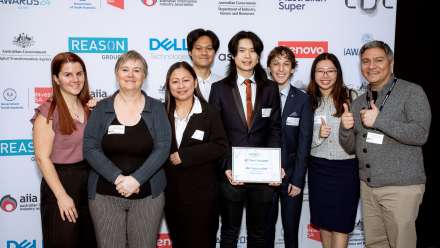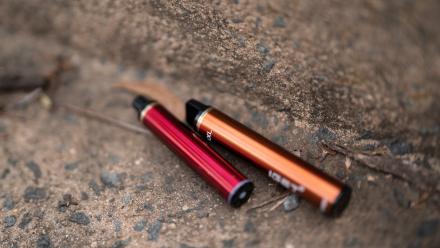In the ACT, food waste is one of the biggest contributors to greenhouse gas emissions,вҖқ Arian explains. вҖңWe wanted a solution that was practical, educational, and inspiring."
If youвҖҷve wandered past the ANU Kitchen Garden Plot recently, you may have spotted an unusual kind of powerhouse вҖ“ The Worm Palace. This humble looking worm farm is at the heart of the вҖңWorms against WasteвҖқ project, which is delivered by the Kitchen Garden program, which has just been named a finalist for the 2025 Green Gown Awards Australasia in the Leading the Circular Economy category.
Launched in 2022, the Kitchen Garden program has been a hub for hands-on learning, offering , cooking and sustainability. In 2023, the team successfully secured a Community Zero Emissions Grant from the ACT Government to purchase the first ANU working worm farm вҖ“ a living example of how small, scalable changes can make a big environmental impact.
For program lead Arian McVeigh, worm farming isnвҖҷt just an initiative вҖ“ itвҖҷs a passion decades in the making. вҖңI got my first worm farm for my home about 20 years ago when I started growing a lot of my own food, and I learnt about permaculture principles and how much we can learn from observing and mimicking or working in partnership with nature,вҖқ she reflects. вҖңIt was such a magical experience to watch the worms turn my left-overs and food waste into beautiful, nutrient-rich natural fertiliser and soil conditioner, which made my garden flourish and helped me grow more food. And itвҖҷs so easy to do вҖ“ the worms do all the work!вҖқ
вҖңIn the ACT, food waste is one of the biggest contributors to greenhouse gas emissions,вҖқ Arian explains. вҖңWe wanted a solution that was practical, educational, and inspiring."
Since November 2023, the program has:
- Saved 370kg of food and plant waste from landfill.
- Produced 18 litres of nutrient-rich worm castings. (Worm castings are the solid, nutrient-rich excrement of earthworms, while worm tea is a liquid extract made by steeping castings in water.)
- Run 8 worm farm workshops, 7 composting workshops, and 4 worm farm tours.
- Installed 4 small worm farms in student residences.
If you looked at the thriving worm farms now, you would not expect that there are some challenges in the beginning, such as a lack of knowledge and misconceptions about how they work. Arian recalls, вҖңSometimes people think itвҖҷs messy and complicated and high maintenance and also donвҖҷt know about how valuable the by-product of worm castings and worm tea is. To inspire and educate people. We also have frequent demonstrations of the worm farms in action, regular workshops on worm farming.вҖқ
The program has since created their own , which includes instructions on how to make your own worm farm from mostly found materials for less than $15 and also how worm farms work and fun facts about our worm friends.
Looking ahead, Arian dreams of worm farms becoming a familiar sight across ANU. вҖңA single unit can handle at peak operation up to 80-100 litres of waste per week. WeвҖҷd love to see more of these worm mods across campus as one part of the solution to the huge amount of food waste we collectively produce, and inspire more people to have small-scale worm farms on campus too.вҖқ
Winners for the Green Gowns Awards will be announced in October, but for Arian, the projectвҖҷs success is already clear. вҖңWhen people understand what weвҖҷre doing, the most frequent response is вҖ“ This is great, how can I get involved or can I give you my food scraps?вҖқ she smiles. ThatвҖҷs when you know itвҖҷs making an impact.
If youвҖҷd like to learn more or get your hands dirty, join us for on Wednesday, 3 September вҖ“ tickets open 26 August вҖ“ or check out the for other upcoming events.


